Home / Museums, Heritage and Indigenous Culture / Congratulations to our CILR Award recipients
Congratulations to our CILR Award recipients
2024 CILR Awards
Congratulations to Kellie Aleck, Audrey Pearson and Amanda Crocker, the recipients of our 2024 Certificate in Indigenous Language Revitalization Awards!
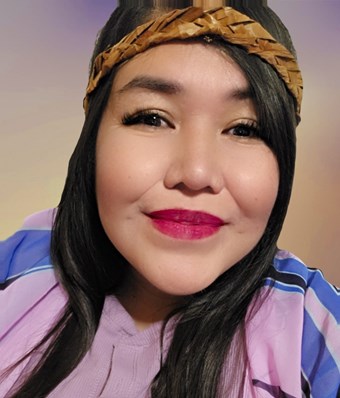
Kellie Aleck, Penelakut Tribe, Penelakut Island, British Columbia
Kellie is from Penelakut Island and recently moved back home to the island. She is the mother of one daughter. She and her family have a song and dance group where the songs incorporate the Hul'qumi'num Language. Kellie became interested in the Indigenous Language Revitalization program because as a Lands Officer for her Tribe, she reviews historical records and a lot of it is in Hul'qumi'num and she'd only known a few basic words. Upon completing CILR, Kellie would like to take part in creating more songs that brings Hul'qumi'num back to life. She also would like to keep the history alive. Huy'ce:p'qa siem to UVic and Penelakut Tribe for this amazing opportunity.

Audrey Pierre, Gitxsan, Gitsegukla, British Columbia
Audrey Pierre is from Gitsegukla, BC, from Wilp Luuxhon. She is also Gitxsan. Her other name is Tsimanluuskeexs which means swimming in shallow water. She is the mother of 2 beautiful daughters. She loves learning, playing soccer and being a hockey mom.
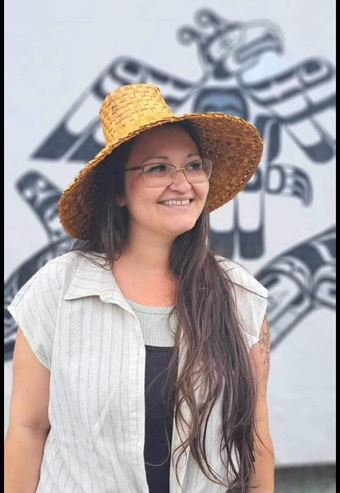
Amanda Crocker, Penelakut First Nation, British Columbia
Amanda Crocker is Coast Salish and a member of the Penelakut First Nation. She is also of mixed settler - European English, French, Irish, Scottish ancestry. She grew up and attended school in the Comox Valley and consider it her home where she lives with her partner and children.
Due to cultural disconnects, effects of residential school, loss of indigenous languages, loss of culture and colonization, she did not grow up immersed in her indigenous culture. She has been able to reconnect to her indigenous culture through lived experiences and making connections through her own education and working as an Indigenous support worker. She enjoys sharing her passions with others. Learning and sharing about the diversity of Indigenous cultures and true Canadian history. Sharing with others, especially children and youth gives her hope.
“I hope to help pave way for our children, our future. I want them to feel empowered, gain confidence in themselves and to understand the importance of finding their own “gifts”. I was reminded that indigenous languages and culture was never gone. Our ancestors have just been waiting. People I have met along the way help to teach me something every day. And for that, I am grateful. Through identity, finding out where we come from, our cultures and languages. We will thrive. huy ch q’u - thank you for your support and taking the time to learn about me and and my journey.”
2023 CILR Awards
Congratulations to Tiara Opissinow, Cindy Ann Rennie, and Iokarenhtha Thomas, the recipients of our 2023 Certificate in Indigenous Language Revitalization Awards.
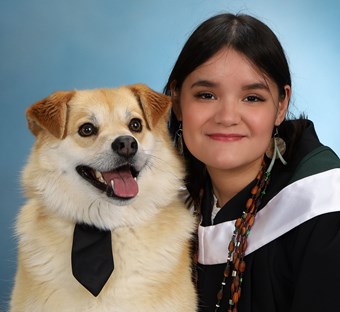
Tiara Opissinow, Onion Lake Cree Nation, Treaty 6 Territory, Saskatchewan
Tiara Opissinow was born and raised in Onion Lake Cree Nation, in Treaty 6 territory where she lives with her family, her dog napatak, and her cat manicōs. She completed her Bachelor of Arts in Linguistics in the spring of 2023 at the University of Alberta. Currently, she is working on learning her language, Plains Cree, with her grandma. She is currently enrolled in the micro-certificate in Indigenous Language Documentation. Through this certificate, she aims to combine her passion of videography and art to learn new and creative ways to keep her language alive.
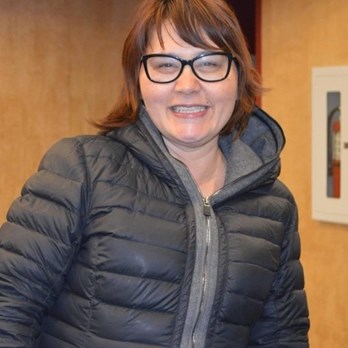
Cindy Ann (Inutsiaq) Rennie, Iqaluit, Nunavut
Cindy Ann (Inutsiaq) Rennie was born and raised in Iqaluit, Nunavut. Cindy started working as an Inuk Interpreter translator in the languages Inuktitut, English and French for patients from Nunavut to receive medical care in Montreal, Quebec back in the 1990s. Cindy worked in the Communications and Media field focusing on showcasing Inuit Culture and traditions. Cindy returned to Nunavut in 2001 to contribute to the newly created territory Nunavut. She is currently employed with the Legislative Assembly of Nunavut. Cindy enjoys working with people and celebrate her culture. She has two grown sons and lives in Iqaluit.
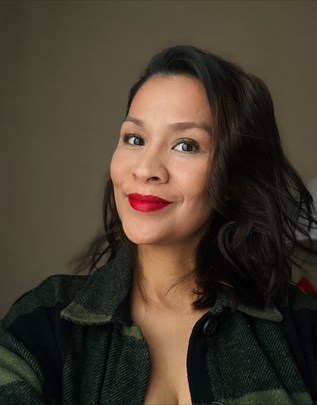
Iokarenhtha Thomas, Six Nations of the Grand River Territory, Ontario
Shé:kon. Iokarenhtha Thomas is the mother of 5 children. She is a Mohawk (wolf clan), originally from the Oneida Nations of the Thames and Akwesasne Mohawk Territory, but currently resides at Six Nations of the Grand River Territory with her family. She is a recent graduate of McMaster University’s Indigenous Studies program and currently, is in her first year of the Onkwawenna Kentyohkwa Mohawk Immersion Program. She was very fortunate to have grandparents who have instilled in her, a great sense of identity, knowledge, and pride as a Hotinonshón:ni person, along with the importance of preserving and revitalizing their original language, culture, and governance systems, for our future generations. She has worked in language preservation and revitalization, off and on, since she was 15 years old, and it continues to be a great passion of hers. When not in school, she enjoys painting, drawing and learning new art forms. She also enjoys being out on the land, exploring, fishing, hunting, and spending time teaching her children everything that she can. She thinks it is vital for her children to have a strong connection to the land that they’re born from, so that they have a better understanding of who they are as Onkwehon:we (original people). She writes, “I know this is only the beginning of a lifelong learning journey, but I thank the Indigenous Language Revitalization program for providing so much to me in such a short span of time. I hope to put these skills to work very soon! Niá:wen.”
2022 CILR Awards
Congratulations to Makee Kakee (Maaki) and Barbara Ballantyne, the recipients of our 2022 Certificate in Indigenous Language Revitalization Awards.
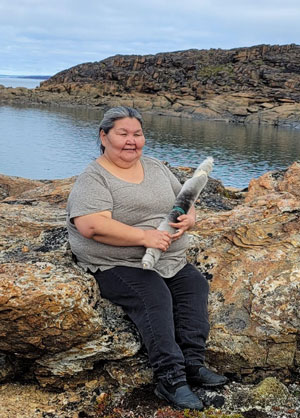
Makee Kakee, Panniqtuuq/Iqaluit
Makee Kakee (Maaki) is originally from Pannniqtuuq and moved to Iqaluit 24 years ago to work for BRIA, now called Qikiqtani Inuit Association as an Interpreter/translator. Makee completed a diploma program of Interpreter/Translator and has been working professionally for 30 years. She loves working with Elders to gather information about the past and Inuit Qaujimajatuqangit. Over her career, Makee has worked in different organizations such as, Nunavut Tunngavik Incorporated (NTI), Nunavut Social Development Council (NSDC), Nunavut Court of Justice (NCJ) and as a freelancer, and as an instructor at the Nunavut Arctic College concentrating on Legal Interpreting. Makee is currently taking an educational leave to learn more of the Inuit history, traditions and traditional terminology. She enjoys working with sealskins and sewing garments, both industrial tanned skins and traditionally tanned. Makee has three daughters (one son passed), 24 grandchildren, and one great-grandchild who all speak only or mostly Inuktitut.
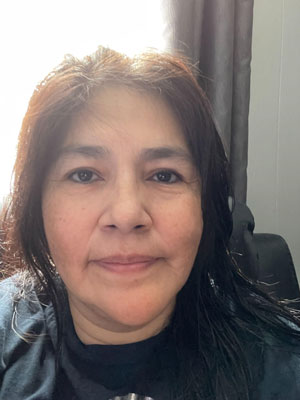
Barbara Ballantyne, Deschambault Lake/Saskatoon
Barbara Ballantyne is from Deschambault Lake, and now lives in Saskatoon, Saskatchewan. She is the mother of ten children and grandmother of five. She is currently writing a book with her daughter in Cree ‘th’ dialect. Barbara became interested in the Indigenous Language Revitalization program because as a mom and an Aboriginal Head Start Coordinator, she could hear the little ones only speaking English. Upon completing CILR, Barbara wants to create or work with a language program to bring back her language.
2021 CILR Award
Congratulations Caroline Ipeelie, the recipient of our 2021 Certificate in Indigenous Language Revitalization Award.
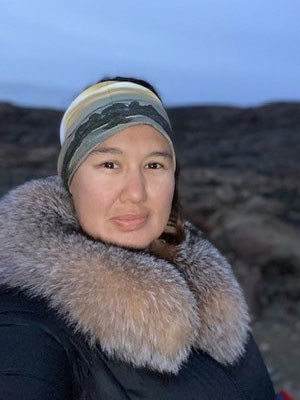
Caroline Ipeelie, Iqaluit
Caroline Ipeelie was born and raised in Iqaluit, Nunavut where the majority of her family resides. She has three boys, who shape and drive her life. She currently works as a Heritage Appreciation Coordinator for the Qikiqtaaluk region; working with locals, collecting stories and promoting Inuit culture.
What she enjoys most is the thrill of that heavy tug and pull of fish biting her hook during the spring months! She is also very excited to continue her community language revitalization projects and will be engaging with Elders to collect information on traditional words, oral history and their thoughts and feelings about the changing and evolving Inuktitut language.
2020 CILR Award
Congratulations Ceporah Mearns, the recipient of our 2020 Certificate in Indigenous Language Revitalization Award.
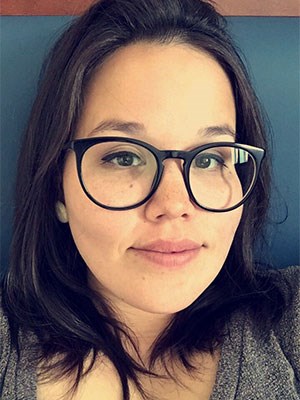
Ceporah Mearns, Panniqtuuq/Iqaluit
Ms. Ceporah Mearns is originally from Panniqtuuq, Nunavut, currently living in Iqaluit. Ceporah is a mother of two and is a celebrated children’s book author whose work has been translated into Inuktut and languages worldwide. A passionate researcher and instructor, volunteer and a student in the Qimattuvik program at the Pirurvik Centre in Iqaluit, NU. Ceporah places Inuit culture, traditions and language at the forefront of her contribution to her community, territory and global community.
2019 CILR Award
Congratulations Carole Tinqui and Samone Sayese-Whitney, the recipients of our 2019 Certificate in Indigenous Language Revitalization Award.
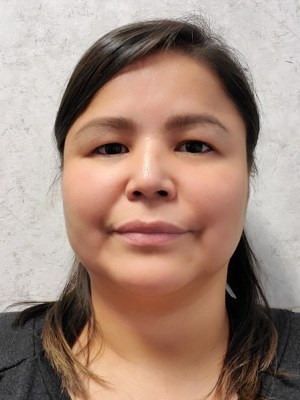
My name is Carole Tinqui. I was born in Behchoko, Northwest Territories and have lived here all my life. I have a daughter name Khloe who is six years old, and am married to Kevin Tinqui. Tłı̨chǫ language is my first language when growing up and it is very important for me and my families. I’ve seen many changes in our community and I want to help those in need, as well as learning more teaching skills. I know it takes a lot of hard work and determination to learn our Tłı̨chǫ language.
I am currently working as a Medical Travel Clerk with Tłı̨chǫ Community Services Agency. The Indigenous Language Revitalization program will support me to learn how to read/write in Tłı̨chǫ, which is especially helpful in dealing with elderly patients. Once I complete the certificate program, I want to work for our Tłı̨chǫ community and utilizing the skills that I’ve learned.
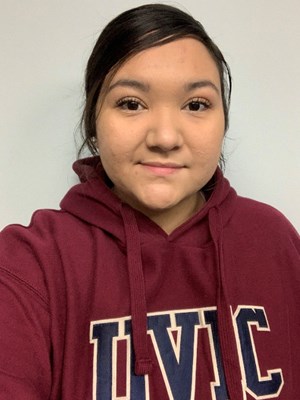
Samone Sayese-Whitney is a member of the Tsuut'ina Nation. She is a mother of two, aged 4 years and 10 months. Since 2012, Samone has been teaching language at the Tsuut’ina Gunaha Institute at the elementary, middle and high school level. Samone began the Certificate in Indigenous Language Revitalization with colleagues at the Tsuut’ina Gunaha Institute in 2019. She looks forward to completing her certificate and continuing on to gain a Bachelor of Education to support her work in Indigenous education and language revitalization.
About the CILR Award
The Certificate in Indigenous Language Revitalization (CILR) Award was made possible through the generosity of anonymous donors, and will contribute to ensuring the CILR program is accessible to more learners to support their educational path and the language revitalization needs of their community. Learn more about the CILR Award.
- Posted January 12, 2022
RELATED TOPICS: Indigenous Language and Culture
Visit Registration
2nd Floor | Continuing Studies Building University of Victoria Campus 3800 Finnerty Road | Victoria BC | CanadaTel 250-472-4747 | Email uvcsreg@uvic.ca
2025 © Continuing Studies at UVic
Legal Notices |
Sitemap

